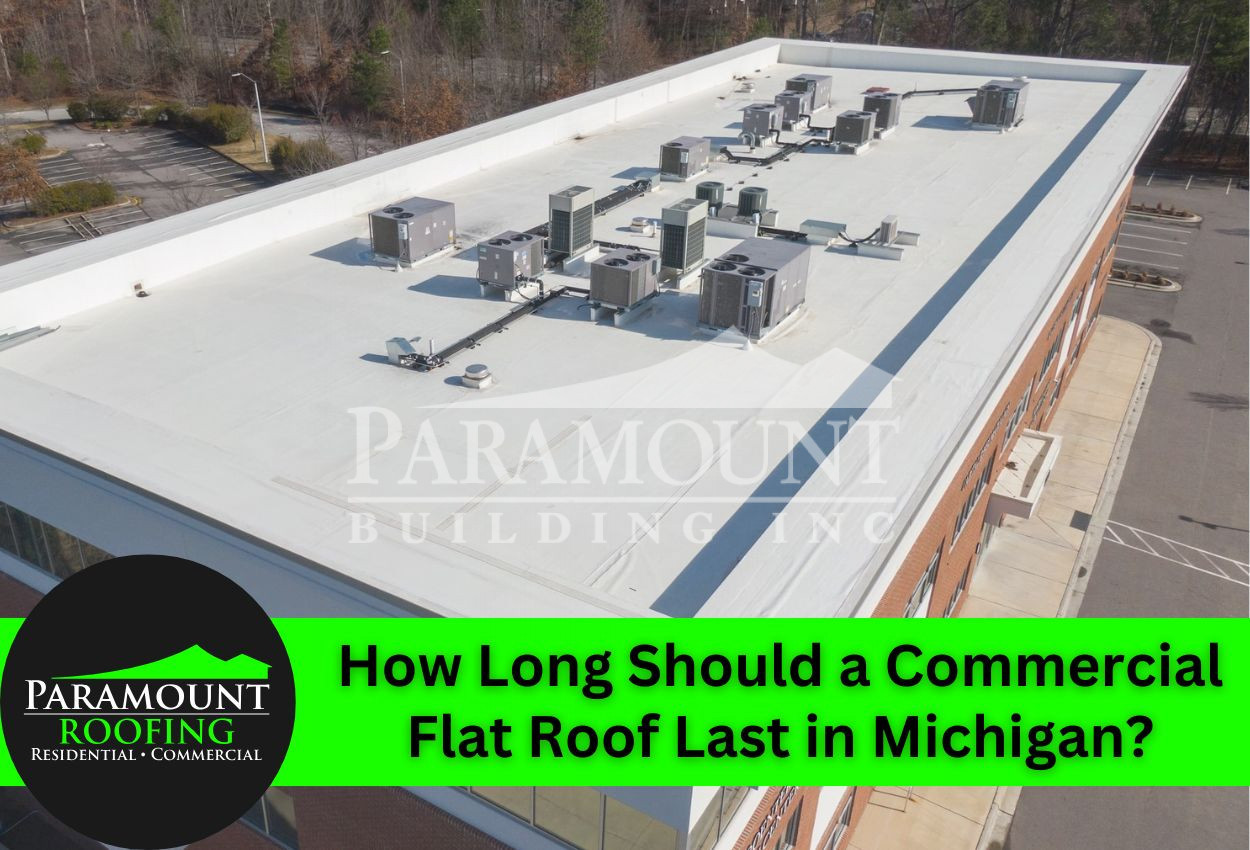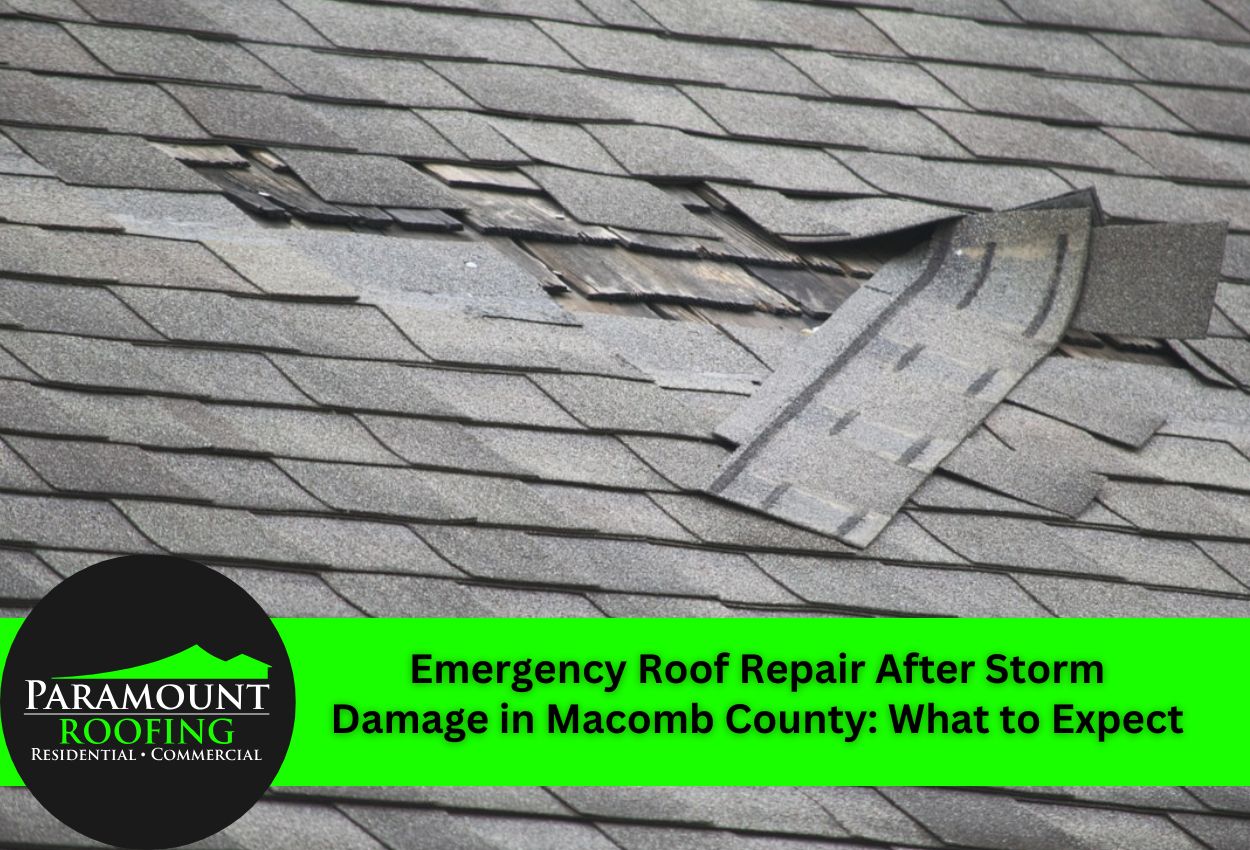What are Composite Roofing Materials: The Modern Alternative for Detroit Homes

Composite roofing materials represent one of the most innovative advancements in residential roofing technology. These engineered products combine recycled plastics, rubber, polymers, and other materials to create durable shingles and tiles that look very similar to natural roofing materials like slate, wood, or clay. For Detroit homeowners facing Michigan’s heavy snowfall and summer storms, composite roofs offer a resilient solution designed to withstand these challenging elements.
Unlike conventional asphalt shingles that may deteriorate quickly under extreme temperature fluctuations, composite roof shingles maintain their structural integrity throughout Detroit’s freezing winters and humid summers. These synthetic roofing materials deliver benefits beyond durability, including enhanced fire resistance, reduced maintenance requirements, and impressive longevity, with many products lasting 30 to 50 years.
Eco-friendly composite roofing options have become a top choice among environmentally conscious Michigan homeowners. Many composite roof tiles incorporate recycled materials, reducing landfill waste while providing superior protection. The exceptional composite roof tile durability makes these materials a great choice for Detroit properties, where roofing systems must withstand everything from ice dams to high winds throughout the year.
Structure and Manufacturing of Composite Roofing Materials
Composite roofing materials contain an innovative blend of ingredients engineered for exceptional performance. These typically include recycled plastics, rubber, fiber-cement components, and specialized polymer binding agents. Some manufacturers incorporate additional elements like limestone, clay, or fiberglass for enhanced durability and aesthetic qualities.
The manufacturing process begins with sorting and cleaning recycled materials before precise measuring and blending of the components. This mixture undergoes heat compression in molds that imprint authentic textures resembling slate, cedar shakes, or clay tiles. Advanced UV inhibitors and color-fast pigments are integrated throughout the material, not just surface-applied, ensuring Detroit homes maintain their appearance despite years of sun exposure.
What makes these composite roofing materials especially suitable for Michigan homes is their engineering specifically for extreme weather resilience. The manufacturing includes freeze-thaw cycle testing to ensure composite shingles won’t crack during Detroit’s winter-to-spring transitions. The final products undergo rigorous quality testing for impact resistance from hail and falling branches, water absorption rates, and wind uplift resistance, critical for Western Michigan’s lake-effect weather patterns. This careful engineering explains why composite roof shingles consistently outperform traditional asphalt in our region’s challenging climate.
Composite vs. Asphalt Shingles: A Michigan Homeowner’s Comparison
When comparing composite roof shingles vs. asphalt shingles for Detroit homes, there are some clear differences that homeowners should know. Composite materials demonstrate superior resistance to damage caused by ice dams, a common winter problem that causes water infiltration and interior damage. While traditional asphalt shingles can deteriorate under repeated freeze-thaw cycles, composite roofing materials maintain their structural integrity, preventing water damage during spring thaws.
Wind resistance is another crucial advantage for Michigan homeowners. Composite shingles typically withstand winds up to 110 to 130 mph, compared to standard asphalt’s 60 to 80 mph rating. This enhanced wind uplift resistance is especially helpful during severe thunderstorms and lake-effect weather events that frequently impact the Detroit area.
Though initial installation costs run higher than asphalt shingles, composite’s extended lifespan makes a compelling financial case. While asking “How long do composite roofs last?” most manufacturers offer warranties ranging from 30 to 50 years, nearly double typical asphalt guarantees. Michigan homeowners also benefit from reduced maintenance, as composite materials resist algae growth, moss accumulation, and impact damage from hail or falling branches.
Energy efficiency provides another advantage, as eco-friendly composite roofing options reflect more solar heat than dark asphalt shingles, potentially reducing summer cooling costs in Detroit homes by 15% to 25%. This performance, combined with exceptional durability, makes composite roofing materials a popular choice among Michigan homeowners.
Key Benefits of Choosing Composite Roofing Shingles for Detroit Properties
Composite roofing materials bring exceptional performance benefits that directly address common concerns Detroit homeowners have. The enhanced durability of composite roof tiles means they won’t crack, split, or warp during extreme temperature swings from subzero winters to humid summers. Unlike traditional materials, composite roofs stand strong against heavy snow, ice dams, and the freeze-thaw cycles that frequently damage conventional roofing materials in our area.
Maintenance requirements decrease significantly with composite options. These innovative materials resist moss growth, algae buildup, and don’t absorb moisture like organic alternatives. For busy Detroit homeowners, this translates to fewer repair calls and lower long-term ownership costs. The composite roof tile durability extends to excellent impact resistance, protecting homes during Michigan’s hailstorms and when branches fall during high winds.
In addition to practical benefits, composite roofing materials offer remarkable aesthetic advantages. Modern manufacturing techniques create authentic-looking alternatives to premium materials like slate, cedar shake, and clay tile at a fraction of the weight. The color stability of these materials means Detroit homes maintain their curb appeal despite years of UV exposure. With eco-friendly composite roofing options available in numerous profiles and colors, homeowners can achieve distinctive architectural styles while enjoying the peace of mind that comes with superior weather protection.
Environmental Impact of Composite Roofing Materials
The environmental impact of roofing materials has become more important to Detroit homeowners seeking sustainable building options. Composite shingles and tiles stand out as an eco-conscious choice thanks to their innovative use of recycled content. Many premium composite products contain up to 95% recycled materials, which sometimes includes plastic bottles, rubber tires, and wood fiber, that would otherwise end up in Michigan landfills. This recycled content significantly reduces the environmental impact compared to the petroleum-based manufacturing processes used for traditional asphalt shingles.
Beyond production benefits, composite roofs deliver ongoing environmental advantages through energy efficiency. The reflective properties of many composite roofing materials help Detroit homes stay cooler during summer months, reducing air conditioning usage and associated energy consumption. This improved thermal performance can lead to meaningful utility savings while decreasing overall carbon emissions from residential properties.
At the end of their service life, many composite roofing materials can be recycled again, creating a more sustainable lifecycle than conventional alternatives. While traditional asphalt shingles generate approximately 11 million tons of landfill waste annually in the United States, recyclable composite options help minimize this environmental burden. For Detroit homeowners concerned about their ecological impact, the combination of recycled content, energy efficiency, and end-of-life recyclability makes composite roofing materials an environmentally responsible choice that doesn’t compromise on performance or aesthetics.
Longevity and Performance: What Detroit Homeowners Can Expect
When Detroit homeowners invest in composite roofing materials, they can expect a significantly longer lifespan than traditional options. Most premium composite roof products come with warranties ranging from 30 to 50 years, but their actual performance often exceeds these guarantees. Unlike asphalt shingles that typically require replacement after 15 to 20 years, composite roofs maintain their structural integrity and appearance for decades with minimal maintenance requirements.
The unique challenges of Michigan winters make composite roofing materials a good option for Detroit homes. These engineered materials excel during freeze-thaw cycles that cause traditional materials to crack and deteriorate. The synthetic composition prevents water absorption, virtually eliminating the risk of leaks if water ponds on the roof. When snow and ice melt, composite materials won’t warp or buckle like organic alternatives might.
Temperature fluctuations pose another test for roof durability in our region. While Detroit can experience 80-degree temperature swings between seasons, composite roof tiles maintain dimensional stability without expanding or contracting significantly. This resistance to thermal cycling prevents the cracking, curling, and granule loss common with asphalt shingles. For homeowners asking, “How long do composite roofs last?” in Michigan specifically, the answer is clear: significantly longer than traditional materials, with better performance throughout their extended lifespan.
Installation Considerations for Composite Roofs in Michigan
Installing composite roofing materials in Michigan requires specific industry knowledge and techniques. Unlike traditional materials, composite roofing installation must account for proper expansion and contraction allowances specific to composite materials. During Michigan winters, installers must ensure adequate ventilation systems are incorporated to prevent condensation buildup, which can compromise even the most durable roofing systems.
Spring and fall are ideal installation seasons for composite roof tiles in Detroit, as extreme summer heat can make composite materials more pliable and difficult to work with, while winter temperatures below 40 degrees Fahrenheit may compromise the integrity of sealants and adhesives. Professional installation should include proper waterproofing at all valleys and penetrations, with special attention to ice and water shield application at eaves, critical for preventing ice dam damage during Michigan winters.
When selecting a contractor for composite roofing installation, Detroit homeowners should verify manufacturer certification and specific experience with composite roofing materials. Ask potential contractors about their familiarity with composite-specific underlayment systems and fastening techniques. Request references from previous composite roof installations that have weathered at least one full Michigan winter. Qualified contractors should also explain their approach to attic ventilation, as improper airflow can significantly reduce the lifespan of even the most premium composite roofing systems in our challenging climate.
Discover the Durability of Composite Roofs with Paramount Roofing
If you’re a homeowner in Detroit facing the tough decision of selecting the right roofing material, consider the long-term benefits and durability of composite shingles and tiles. Paramount Roofing specializes in providing top-quality composite roofing solutions that are designed to withstand the harsh Michigan weather. With enhanced resistance to freeze-thaw cycles, ice dams, and extreme temperatures, our composite roofing materials guarantee not just longevity but also superior performance compared to traditional asphalt shingles.
Don’t compromise on the quality of your home’s protection. Call Paramount Roofing today at (586) 690-0227 to discuss your roofing needs and explore our advanced composite roofing options. Choose a solution that stands the test of time, perfectly suited for Detroit homes.
 Free Estimate
Free Estimate
 Request Service
Request Service Locations
Locations 



